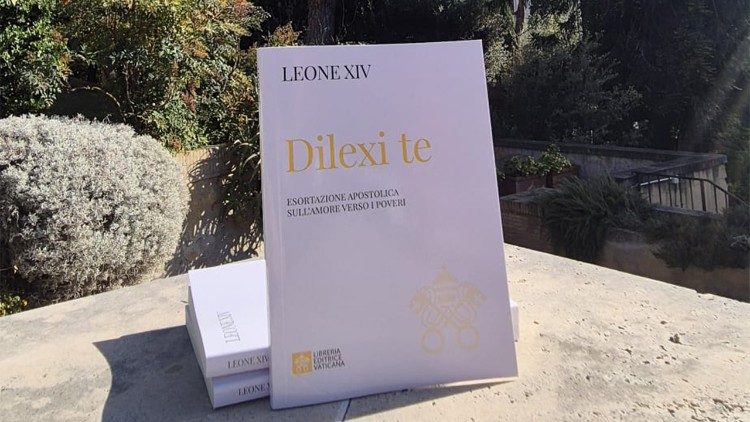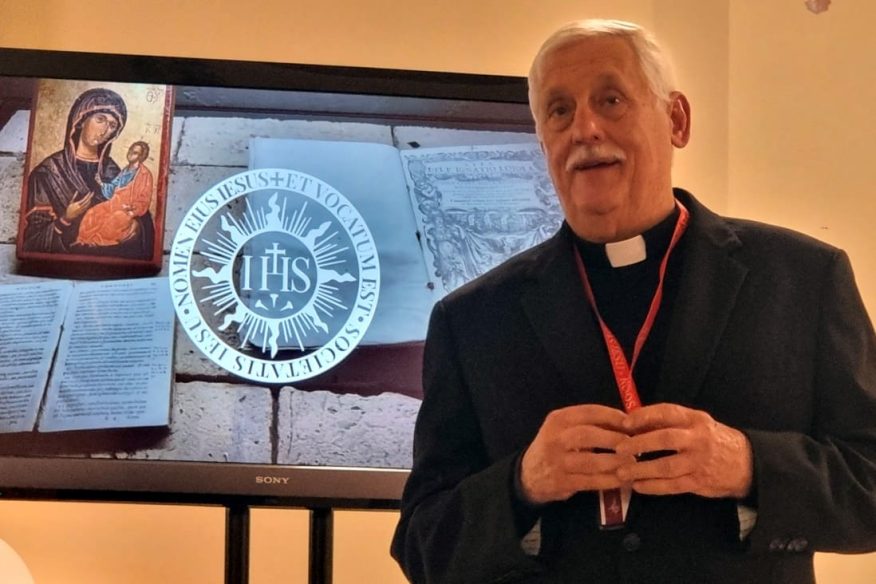“Dilexi te”: Ignatian reflections on the exhortation dedicated to the poor

It is Pope Leo XIV’s first apostolic exhortation, published on 9 October 2025. The document, signed on 4 October, the feast day of St Francis of Assisi, focuses on love for the poor, urging Christians to recognise the presence of Christ in them. ‘Dilexi te’ (‘I have loved you’) recalls the link between Christ’s love and the call to act in favour of those most in need. We report the reactions and comments of Centro Astalli, Jesuit Social Network and Fondazione MAGIS ETS.
Centro Astalli: “The Gospel’s message has social implications”

Centro Astalli expresses gratitude to Pope Leo for choosing to dedicate his first magisterial document to the poor, as this gesture demonstrates an attention that echoes the invitation once addressed by Pope Francis: “Do not forget the poor.” We also believe that two points are especially important for Christian communities: the poor “are not a sociological category, but the very flesh of Christ,” and “the message of the Gospel is not merely about an individual, intimate relationship with the Lord” but is far broader—it “is the Kingdom of God” […] “and both the proclamation and the Christian experience are meant to produce social consequences.”
Jesuit Social Network: “From Assistance to Unconditional Love”

Pope Leo XIII’s Apostolic Exhortation Dilexi Te continues the trajectory of previous magisterial teaching, especially that of Pope Francis, on the theme of poverty, guiding all Christians back to the core of their faith. It affirms clearly and forcefully that the poor are not merely a sociological category, but the very “flesh of Christ.”
But for all those working in the social field, it carries an even deeper significance: it is not merely a document of faith, but a powerful ethical reaffirmation that resonates profoundly in daily practice.
Above all, it reminds us that the poor are subjects of love, not just recipients of aid: the heart of the message, “I have loved you,” shifts the perspective from assistance to unconditional love. It encourages us to see the vulnerable not simply as a “case” to manage or a “client” with a specific need, but as a person of immeasurable dignity who deserves care, respect, and a genuine relationship—one that can give us much in return, while also preserving the humanity of our service. We are thus called to enter into a relationship of reciprocity and recognition of intrinsic dignity: to “allow ourselves to be evangelized by the poor.”
For those of us formed by Ignatian pedagogy and committed to fostering its spirit, this means creating pathways to enhance the quality of life for the people we serve, so that each individual feels accepted and recognized not for the needs they bring, but for the qualities they embody—ultimately transforming diversity into a valuable resource. This approach rests on the conviction that every person possesses within themselves what is needed to live a life full of meaning and accomplishment, supported and guided, when necessary, through a formative process of discovery and self-recognition.
Dilexi Te goes beyond individual acts of charity, calling the entire Church (and, by extension, all who work within it) to boldly denounce the structures of injustice that generate poverty, such as indifference and the “dictatorship of a killing economy.”
For those working in the social sector, this means not merely managing emergencies, but committing to cultural and political change, becoming active agents of transformation. It entails bringing the voices of the “voiceless,” along with one’s own firsthand experience (“touching the suffering flesh”), into decision-making arenas and engaging in advocacy to ensure that public policies are fairer and more effective, addressing the root causes of injustice rather than simply its effects. As the Pope emphasizes, indifference is a “sin,” and we who work in social service are called to be a voice that both denounces and awakens.
It also seems to me that the Exhortation acknowledges the complexity of contemporary poverty—material, moral, spiritual, cultural, and in terms of rights and freedoms. This is a direct call to our institutions not to cling rigidly to categories that may have become outdated, but to dedicate themselves to refining the tools of listening and intervention, so as to perceive the often quiet “cry” of those who are socially marginalized or lack the means to express their inherent dignity.
Guido Bava, JSN president
Magis Foundation: “Walking with the Poor, Working for Justice”

“The Apostolic Exhortation Dilexi Te by Pope Leo XIII strengthens and affirms the commitment to walk with the poor and work for justice, which are at the very heart of the Magis Foundation’s mission.” This is how Ambrogio Bongiovanni, president of the Magis Foundation Ets—a missionary initiative of the Euro-Mediterranean Province of the Jesuits carrying out human and social development projects in numerous countries around the world—describes the first document of Pope Leo XIII’s pontificate.
“It is an exhortation courageously issued at a time when States, through their hegemonic political decisions and growing support for a war-driven economy, risk aggravating the precarious situation of hundreds of millions of people worldwide as well as the health of our planet,” Bongiovanni highlights. “It clearly reaffirms and strengthens the Church’s preferential option for the poor, not only within its hierarchy but also through its communities and the commitment of individual Christians.”
“Pope Leo thus decisively carries forward the legacy of his predecessor, Pope Francis, by placing at the heart of the Magisterium a focus on love for the poor and attentiveness to their ‘cry,’ which becomes all the more urgent when caused by wars and indiscriminate, merciless massacres, such as those we have witnessed in recent years,” continues the president of MAGIS.
“A Christian cannot see the poor merely as a social problem: they are a ‘family matter,’ they are one of us,” the document published yesterday warns. According to Bongiovanni, its purpose “is to exhort and prompt reflection so that ‘all Christians may perceive the deep connection between the love of Christ and His call to draw close to the poor,’ that is, to recognize Jesus Christ precisely in the poor and the suffering. Love for Christ cannot be separated from love for the poor. This reflection is not simply a question of social doctrine but is firmly rooted in a theological and missionary perspective, because ‘we are not operating within the framework of charity, but of Revelation.’ What does Christian Revelation teach us?”
“And once again, a warning,” the president of MAGIS highlights: “to ignore the cry of the poor or to despise the poor ‘is to distance ourselves from the very heart of God.’ It is a powerful message for everyone—individual believers, communities, and especially those holding economic and political power.
Heeding this exhortation means initiating processes of change even within the existing structures of injustice that continue to perpetuate exploitation and a culture of discard—the rejection and contempt of the poor, migrants, and the persecuted… in short, all those groups who were also at the heart of Jesus’ own mission.”
“The Church thus presents itself ‘as the Church of all, and especially as the Church of the poor,’” concludes Bongiovanni, “but also as a presence in the world that denounces the structures of sin and acts as a call to conversion. This is precisely what the Magis Foundation aims to pursue with all its available resources: to help awaken consciences and bear witness to love in the world.”
